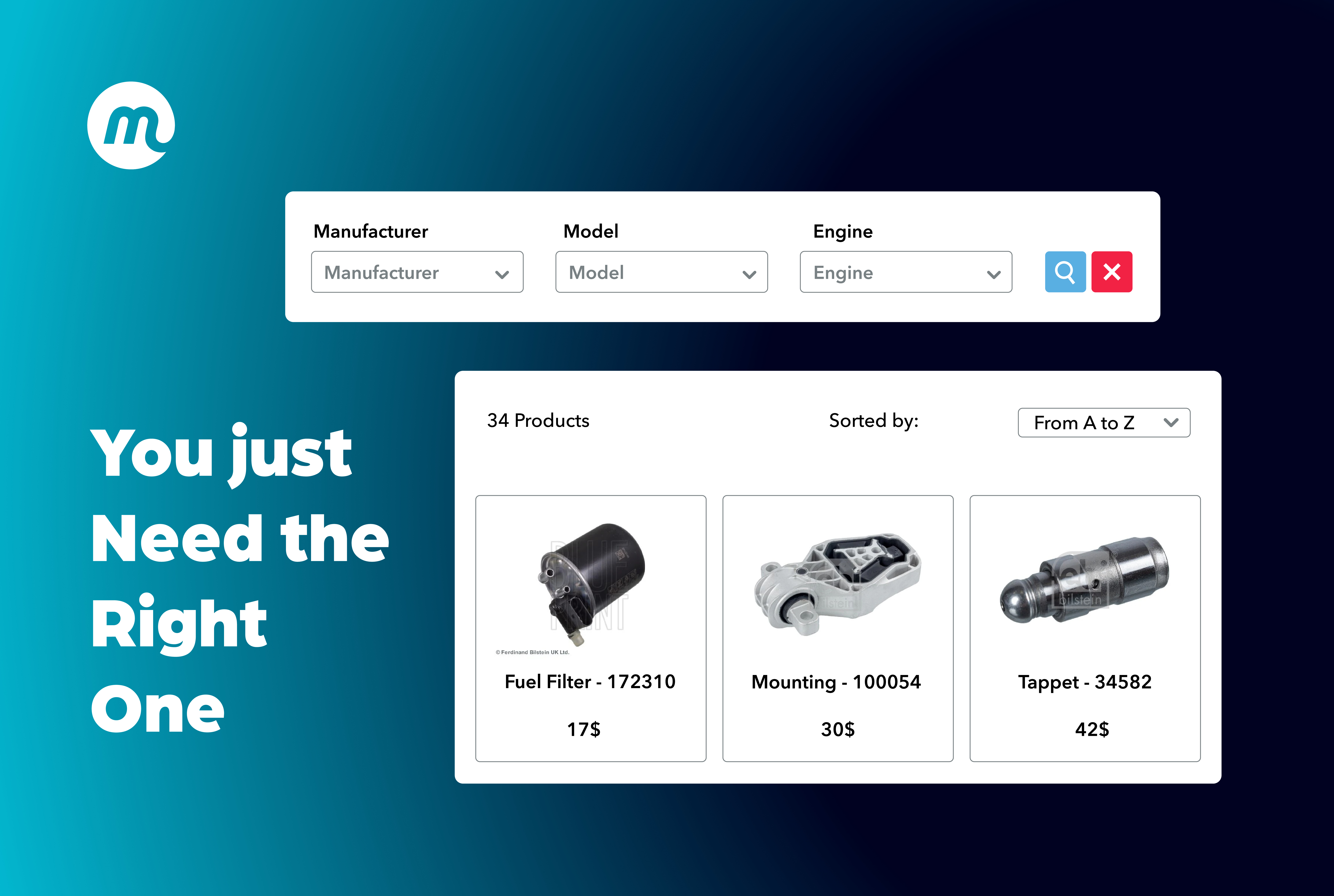Your vehicle selector should work for you — not against you
If you sell auto parts online, you know how crucial it is to get one thing right: vehicle compatibility. Your customers rely on you to show them parts that fit their exact car — no second guessing, no mistakes. But for many store owners, that’s easier said than done.
Most vehicle selectors available today weren’t designed for growing ecommerce businesses. They’re hard to manage, rarely up-to-date, and they create more work than they save — especially if you sell thousands of parts.
In this article, we’ll break down the five biggest reasons most vehicle selectors fail — and what modern sellers can do to build a better system.
1. Manual mapping slows everything down
Let’s start with the most common frustration: you receive parts from a supplier, but you’re the one responsible for matching each part to the right vehicles.
That means working through spreadsheets, checking part numbers against vehicle specs, and uploading files line by line.
This approach:
- Wastes hours of manual effort
- Increases the risk of human error
- Breaks every time a supplier changes something
For sellers with large catalogs, this process becomes a full-time job — and mistakes can lead to returns, lost sales, and unhappy customers.
What to do instead:
Choose a system that automatically maps parts to vehicle compatibility using a built-in database. Mecaparts connects your catalog to structured vehicle data, which means less manual work and more accuracy out of the box.
2. Poor user experience = abandoned carts
Even with the right data, your customers may still leave if the selector is hard to use.
Common issues include:
- Overcomplicated dropdowns
- Slow page load times
- Incompatibility with mobile devices
- Lack of filtering by version, engine, or year
Your customers don’t have time to guess or scroll through irrelevant parts. If they can’t easily filter by their exact vehicle, they’ll abandon the cart and head elsewhere.
What to do instead:
Use a fast, responsive, and mobile-optimized selector that fits neatly into your storefront. A clean UX helps customers find what they need faster — and builds trust in your store.
3. Outdated or incomplete compatibility data
Many vehicle selectors rely on static or rarely updated databases. That creates a few serious problems:
- Missing newer models or trims
- Incorrect compatibility results
- Mismatches between your catalog and what’s shown to buyers
This damages your store’s credibility and increases the risk of returns or negative reviews.
What to do instead:
Integrate your selector with reliable, regularly updated sources like TecDoc. With Mecaparts, your catalog can sync with the latest global data — so you’re not left behind as vehicle markets evolve.
4. No localization for your region or market
Vehicle selectors are not one-size-fits-all. Depending on where your customers are located, they may search differently. For example:
- In the UK and US, many users prefer selecting by make, model, and year
- In Germany, compatibility search using the KBA number (found on registration documents) is standard practice
If your selector doesn’t support the formats your customers expect, they’ll struggle to find what they need — and you’ll lose the sale.
What to do instead:
Choose a selector that supports regional compatibility formats, like KBA search in Germany or VIN search where needed. Mecaparts was built with international sellers in mind, offering flexibility based on local market norms.
5. No bulk import = serious scaling problems
Even if your selector has good compatibility logic, how easy is it to upload your catalog?
Many platforms make this process painful:
- One-by-one uploads
- Confusing file templates
- No support for fitment in bulk
That creates a bottleneck every time you want to add or update products.
What to do instead:
Look for a tool that supports bulk import with automatic compatibility mapping. Mecaparts lets you upload thousands of parts, assign vehicle fitments, and sync with your store — all in just a few clicks.
Why this matters: Compatibility builds customer trust
Fitment isn’t just a backend feature — it’s a critical part of your customer experience. When customers see clear, accurate compatibility:
- They buy with confidence
- They’re less likely to return items
- They trust your store and come back again
Meanwhile, you save time on catalog management and support fewer refund requests — freeing you up to focus on growth.
Final thoughts: It’s time for a better selector
If your current vehicle selector is hard to use, unreliable, or time-consuming to maintain, you’re not alone — and you don’t have to settle for it.
At Mecaparts, we’ve built a solution tailored for modern auto parts sellers. Our vehicle selector is:
- Automated and scalable
- Built on reliable compatibility data
- Designed for real ecommerce workflows
- Flexible across regions and catalog sizes
Whether you're selling across the UK, Europe, or the US, we help you streamline your catalog and improve your customer experience — without the manual headaches.
To learn more, visit mecaparts.app.
FAQs
What is a vehicle selector?
A vehicle selector is a tool on an auto parts website that allows customers to filter products based on their vehicle's make, model, year, and version — helping ensure part compatibility.
Why do most vehicle selectors fail?
They often rely on outdated data, require too much manual mapping, lack bulk upload features, or provide a poor user experience for buyers.
How can I offer KBA search in Germany?
Look for a vehicle selector that includes KBA search functionality natively. Mecaparts supports this and other regional search formats for European markets.


